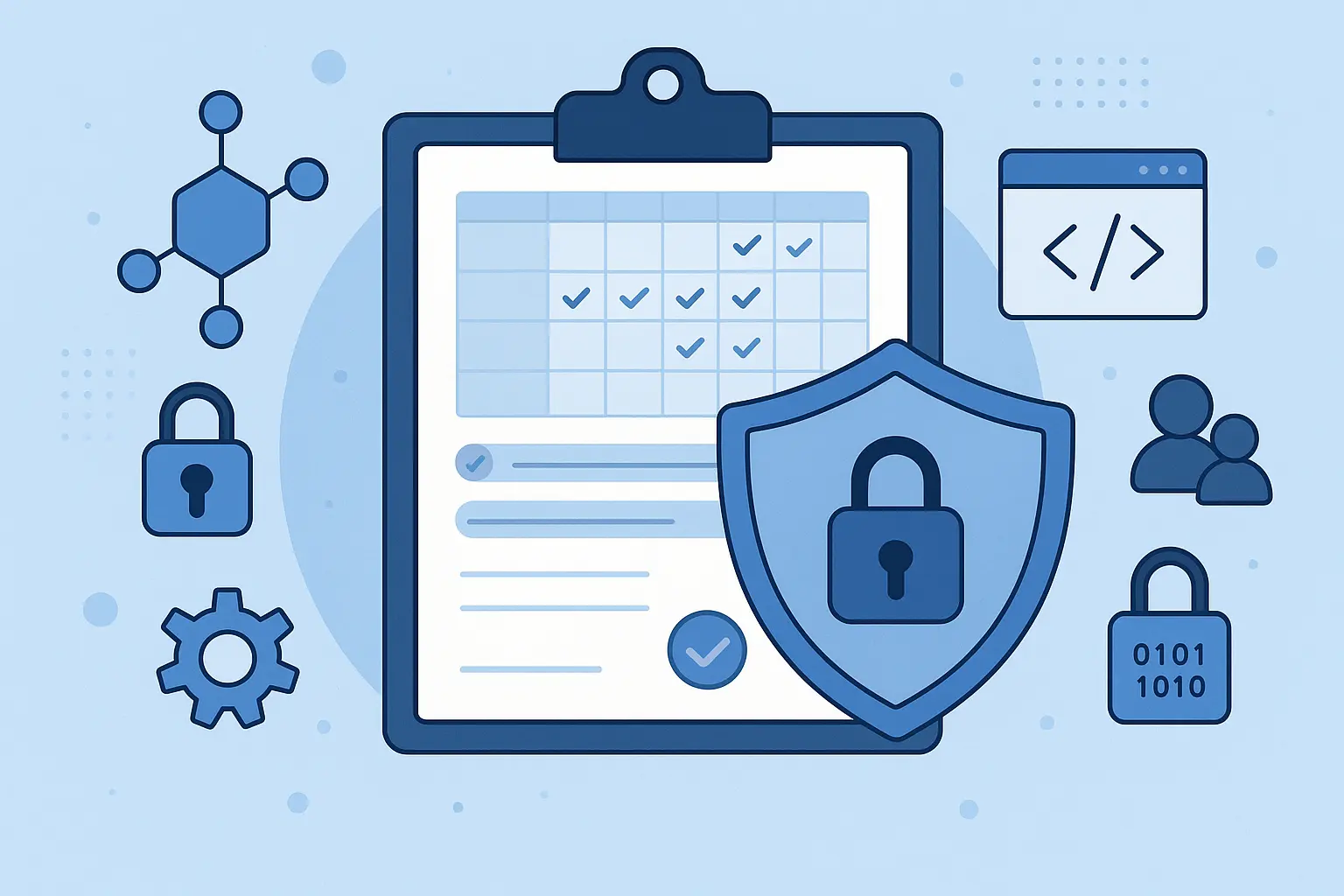Building a service business from scratch can be both challenging and rewarding. Whether you’re starting a consulting firm, a cleaning service, or a tech support company, the journey begins with a solid plan. This guide will take you through the crucial steps to transform your idea into a thriving service business. From identifying your niche and setting up the legal structure to marketing your services and managing operations, you’ll gain valuable insights to navigate the entrepreneurial landscape. Embrace the process, stay committed, and watch your vision come to life as you build a successful service business from the ground up.
What is a Service Business?
A service business is a type of business that provides intangible products, meaning they offer expertise, experience, and solutions rather than physical goods. Examples of service businesses include consulting firms, marketing agencies, IT support, legal services, healthcare providers, and more. These businesses are often categorized based on the type of service they offer, such as professional services, personal services, and business services.
Key Characteristics of Service Businesses:
- Intangibility: Services cannot be seen, touched, or stored like physical products. They are often delivered in real time and require customer participation.
- Inseparability: The production and consumption of services take place at the same time. For instance, a customer experiences a haircut while it is being provided.
- Perishability: Services cannot be stored for future use. A service opportunity must be noticed to be recovered. For example, an empty hotel room for a night cannot be sold the next day.
- Variability: The quality of services can vary depending on who provides them, where, when, and how they are provided.
What are the Benefits of Starting a Service Business?
1. Low Startup Costs
- Service-based businesses typically need less initial investment than product-based businesses. There is no need for inventory, manufacturing equipment, or storage space.
- Many service businesses can be started from home, reducing the need for office space and other overhead costs.
2. Flexibility and Scalability
- Service businesses can be flexible regarding location, hours, and service type. This allows entrepreneurs to tailor their offerings to meet market demands and personal preferences.
- A service business can be scaled by hiring more staff, offering additional services, or expanding to new markets.
3. High-Profit Margins
- Service businesses often achieve higher profit margins with lower operating costs than product-based businesses.
- The value of services is often based on expertise, experience, and customer satisfaction, allowing for premium pricing.
4. Personal Fulfillment and Impact
- Service businesses often involve direct interaction with clients, providing opportunities to build relationships and positively impact their lives or businesses.
- Entrepreneurs can offer services that align with their passions, skills, and values, leading to greater personal fulfillment.
5. Adaptability to Market Changes
- Service businesses can quickly adapt to changing market conditions, customer preferences, and technological advancements. This agility helps in staying competitive and relevant.
- Services can be tailored and individualized to meet specific client requirements, providing a competitive edge.
6. Opportunities for Niche Markets
- Service businesses can target niche markets with specialized offerings. By focusing on a specific industry or customer segment, businesses can set themselves apart and cultivate a reliable customer base.
- Niche markets often have less competition, allowing for easier market entry and establishment.
How To Build A Service Business From Scratch?
Building a service business from scratch can be a beneficial venture if approached with careful planning and execution. Here’s a step-by-step guide to help you get started:
1. Identify Your Niche And Value Proposition
The first step in building a service business is identifying your niche and defining your value proposition. This involves understanding your strengths, passions, and market needs. Perform market research to uncover market opportunities that your services can fill. Consider the following questions:
- What distinct skills and experiences do you offer?
- Who is your target audience?
- What problems does your target audience face that you can solve?
Once you’ve identified your niche, craft a clear value proposition outlining your services’ unique benefits. This will be the foundation of your marketing and sales efforts.
2. Develop a Business Plan
A well-thought-out business plan is crucial for the success of your service business. It serves as a roadmap that guides your decisions and helps you focus on your goals. Your business plan should include:
- Executive Summary: Give a summary of your business, detailing your mission statement, target audience, and unique value proposition.
- Market Analysis: Detailed research on your industry, target market, and competitors.
- Service Offerings: An overview of the services you will offer.
- Marketing and Sales Strategy: Your plan for attracting and retaining customers.
- Financial Projections: Estimates of your revenue, expenses, and profitability.
- Operational Plan: How you will run your business on a day-to-day basis.
3. Legal Structure and Registration
Choosing the right legal structure for your business is essential for protecting your assets and ensuring compliance with local laws. Common legal structures for service businesses include:
- Sole Proprietorship: Simple and inexpensive, but offers no personal liability protection.
- Partnership: Ideal for businesses with multiple owners, but partners are personally liable for business debts.
- Limited Liability Company (LLC): Offers personal liability protection and flexible management options.
- Corporation: Provides the most substantial liability protection but is more complex and expensive to set up and maintain.
4. Build Your Brand
Your brand is the identity of your service business. It distinguishes you from your competitors and helps build trust with your target audience. Building a solid brand involves:
- Creating a Memorable Logo: Your logo is the visual representation of your brand. Design a logo that resonates with your business values and connects deeply with your audience.
- Developing a Brand Voice: Your brand voice is the tone and style of your communication. It should be consistent across all channels, from your website to social media and marketing materials.
- Crafting a Compelling Story: Share your business story and mission with your audience. This helps build an emotional connection and establishes your credibility.
5. Set Up Your Finances
Proper financial management is essential for the sustainability and growth of your service business. Setting up your finances involves organizing your financial accounts, planning your budget, and implementing effective financial practices. Here’s how to get started:
- Open a Business Bank Account: Maintain a clear difference between your business and personal finances.
- Accounting System: Establish an accounting system to monitor income, expenses, and cash flow.
- Pricing Strategy: Determine competitive pricing that covers your costs and reflects the value of your services.
6. Establish an Online Presence
In today’s digital age, maintaining a robust online presence is vital for the success of any service business. This includes:
- Creating a Professional Website: Your website typically serves as a potential customer’s first engagement point. Ensure it is user-friendly, mobile-responsive, and provides all the necessary information about your services.
- Optimizing for Search Engines (SEO): Implement SEO best practices to improve your website’s visibility on search engines. This includes using relevant keywords, creating high-quality content, and building backlinks.
- Leveraging Social Media: Make use of social media platforms to engage with your target audience, distribute valuable content, and promote your services effectively.
7. Develop a Marketing Strategy
An effective marketing strategy is essential for attracting and keeping customers. Consider the following marketing tactics:
- Content Marketing: Develop valuable content that addresses your audience’s pain points and showcases your expertise. This can include blog posts, videos, podcasts, and infographics.
- Email Marketing: Create an email list, then distribute regular newsletters with updates, promotions, and helpful tips.
- Paid Advertising: To expand your audience, invest in paid advertising channels such as Google Ads, social media ads, and sponsored content.
- Networking and Partnerships: Attend industry events, join professional associations, and collaborate with other businesses to broaden your network and gain referrals.
8. Set Up Your Operations
Efficient operations are the foundation of a thriving service business. This includes:
- Creating Standard Operating Procedures (SOPs): Document your processes and procedures to ensure consistency and efficiency.
- Implementing Technology Solutions: Use software and tools to streamline your operations, such as project management, customer relationship management (CRM), and accounting software. Leveraging enterprise software management can further unify these tools, ensuring seamless integration and more efficient oversight across all business operations.
- Hiring and Training Staff: As your business grows, you may need additional staff. Develop a hiring process and provide ongoing training to guarantee that your team is in sync with your business objectives.
- ISO 27001 Certification: As your service business grows, ensuring data security and compliance becomes increasingly essential. Achieving ISO 27001 certification can enhance your business’s credibility and trustworthiness.
9. Provide Exceptional Customer Service
Exceptional customer service builds long-term client relationships and generates repeat business. To provide outstanding customer service:
- Be Responsive: Address customer questions and issues quickly and with professionalism.
- Personalize Your Service: Customize your services to fulfill each client’s needs.
- Seek Feedback: Consistently solicit feedback from your clients and utilize it to enhance your services.
- Go the Extra Mile: Exceed your client’s expectations by delivering exceptional results and adding value.
10. Monitor and Measure Your Success
Tracking your business performance is essential for making informed decisions and identifying areas for improvement. Key performance indicators (KPIs) to monitor include:
- Revenue and Profit Margins: Measure your financial performance to ensure your business is profitable.
- Customer Acquisition Cost (CAC): Track the cost of acquiring a new customer and work to reduce this cost over time.
- Customer Lifetime Value (CLV): Determine the total revenue you can anticipate from a customer throughout your relationship.
- Customer Satisfaction: Use surveys and feedback to measure your clients’ satisfaction and identify areas for improvement.
11. Continuously Improve and Innovate
The business landscape constantly evolves, and staying ahead of the curve is essential, as you must continuously improve and innovate your services. This includes:
- Staying Updated on Industry Trends: Follow industry news, attend conferences, and join professional associations to stay current with the newest trends and top practices.
- Investing in Professional Development: Continuously develop your skills and knowledge through courses, certifications, and training programs.
- Experimenting with New Ideas: Try new approaches and strategies to see what works best for your business.
How to Scale Your Business?
Once your service business is established and running smoothly, it’s time to focus on scaling. Scaling involves expanding your operations, increasing your customer base, and growing your revenue. Strategies for scaling your service business include:
- Expanding Your Service Offerings: Introduce new services that complement your existing ones and meet your client’s evolving needs.
- Entering New Markets: Explore new geographic or demographic markets to reach a wider audience.
- Automating Processes: Use technology to automate repetitive tasks and improve efficiency.
- Hiring and Training: Grow your team by bringing in skilled professionals and equipping them with the essential training and resources.
- Seeking Investment: To support your growth initiatives, consider seeking external funding, such as venture capital, loans, or grants.
Conclusion
In conclusion, building a service business from scratch requires careful planning, dedication, and strategic execution. Start by identifying a niche market, conducting thorough research, and creating a solid business plan. Make delivering exceptional customer service your priority, and continually enhance your skills and offerings.
Utilize digital marketing strategies to expand your reach among a broader audience and establish a solid online presence. Finally, stay adaptable and resilient, as the journey to success involves learning from failures and seizing growth opportunities. Your service business can thrive and achieve lasting success with perseverance and the right approach.








